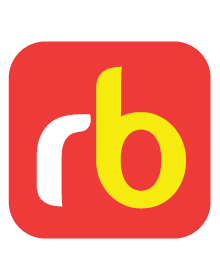
Intelligent Automation (IA), the fusion of Artificial Intelligence (AI) and Robotic Process Automation (RPA), continues to revolutionize business operations, enhance efficiency, and drive digital transformation. In 2024, a new generation of IA solution providers is pushing the boundaries of innovation, offering cutting-edge tools and platforms to automate complex tasks, empower data-driven decision-making, and boost overall productivity.
This updated list highlights the top IA solution providers shaping the future of work and business in 2024:
1. UiPath
A leader in the RPA space, UiPath’s platform offers a comprehensive suite of tools for automating business processes across various industries. UiPath’s AI Center enables the development of custom AI models, while its Document Understanding feature leverages AI to extract data from unstructured documents. Additionally, UiPath’s Test Suite ensures the quality and reliability of automation workflows.
- Pros: User-friendly interface, extensive library of pre-built activities, strong community support, scalable architecture.
- Cons: Can be complex for beginners, high licensing costs for larger enterprises, some limitations in AI capabilities compared to specialized AI platforms.
2. Automation Anywhere
Another major player in the RPA market, Automation Anywhere provides a cloud-native platform for building and deploying intelligent automation solutions. Automation Anywhere’s IQ Bot utilizes AI and machine learning to automate complex, cognitive tasks. Its Bot Insight feature provides real-time analytics and insights into bot performance, enabling continuous improvement.
- Pros: User-friendly interface, extensive library of pre-built activities, strong community support, scalable architecture.
- Cons: Can be complex for beginners, high licensing costs for larger enterprises, some limitations in AI capabilities compared to specialized AI platforms.
3. Microsoft Power Automate
Part of the Microsoft Power Platform, Power Automate enables businesses to automate workflows and processes across various applications and systems. Power Automate’s integration with other Microsoft products, such as Teams and SharePoint, makes it a seamless solution for automating workflows within the Microsoft ecosystem. Its AI Builder feature enables users to create custom AI models without coding expertise.
- Pros: Easy to use, affordable pricing for small and medium-sized businesses, seamless integration with Microsoft 365 suite.
- Cons: Limited capabilities for complex automation scenarios, less robust AI features compared to specialized platforms, dependency on Microsoft ecosystem.
4. IBM Watson Orchestrate
IBM’s AI-powered automation platform leverages natural language processing and machine learning to automate complex tasks and workflows. Watson Orchestrate’s pre-built skills and integrations with various enterprise systems simplify the automation process. Its ability to learn and adapt to changing business needs makes it a scalable and future-proof solution.
- Pros: Strong AI capabilities, seamless integration with IBM Watson services, scalable architecture for large enterprises.
- Cons: Relatively new platform with evolving features, can be complex for non-technical users, higher costs compared to other RPA vendors.
5. Appian
Appian’s low-code automation platform enables businesses to quickly build and deploy enterprise-grade applications and workflows. Appian’s unified platform combines process automation, data management, and AI capabilities, providing a holistic solution for digital transformation. Its low-code approach empowers citizen developers to create and modify applications without extensive coding knowledge.
- Pros: Rapid application development, visual workflow designer, strong process mining capabilities.
- Cons: Limited customization options, can be expensive for smaller businesses, some learning curve for complex implementations.
6. WorkFusion
WorkFusion’s Intelligent Automation Cloud combines RPA, AI, and machine learning to automate complex business processes across various industries. WorkFusion’s platform focuses on automating operations-intensive processes in industries like banking and finance. It offers pre-built solutions for anti-money laundering, know-your-customer compliance, and other regulatory requirements.
- Pros: Strong domain expertise in specific industries, AI-powered decision-making capabilities, robust data security features.
- Cons: Less flexible for general automation needs, higher costs for advanced features, smaller user community compared to other vendors.
7. Kofax
Kofax provides a range of intelligent automation solutions for capturing, processing, and managing information. Kofax’s TotalAgility platform offers a comprehensive suite of tools for automating document-centric processes. Its AI-powered capabilities, such as intelligent capture and cognitive document automation, enable businesses to streamline information processing and improve decision-making.
- Pros: Strong document processing capabilities, comprehensive suite of tools for information management, good integration with legacy systems.
- Cons: Can be complex for smaller businesses, steeper learning curve, limited AI capabilities compared to specialized platforms.
8. Pegasystems
Pegasystems’ Pega Platform enables businesses to build and deploy enterprise-grade applications for customer engagement, customer service, and digital process automation. Pega’s platform is known for its customer-centric approach, offering tools for personalized engagement and real-time decision-making. Its AI-powered capabilities, such as next-best-action recommendations and customer journey analytics, enable businesses to deliver superior customer experiences.
- Pros: Strong focus on customer experience, robust case management capabilities, good integration with CRM systems.
- Cons: Can be complex and expensive for smaller businesses, limited flexibility for custom development, requires specialized skills for implementation.
9. SS&C Blue Prism
Blue Prism’s connected-RPA platform offers a secure and scalable solution for automating enterprise-wide processes. Blue Prism’s Digital Exchange offers a marketplace of pre-built automation components, accelerating the development and deployment of automation solutions. Its Control Room feature provides centralized management and monitoring of all automated processes.
- Pros: Robust security features, scalable architecture for large enterprises, strong governance and compliance capabilities.
- Cons: Steeper learning curve for non-technical users, limited customization options for specific use cases, higher costs compared to other RPA vendors.
10. NICE
NICE offers a range of intelligent automation solutions for customer service, workforce engagement, and financial crime prevention. NICE’s CXone platform combines omnichannel routing, AI-powered self-service, and agent assistance tools to deliver seamless customer experiences. Its NEVA (NICE Employee Virtual Attendant) automates repetitive tasks for contact center agents, freeing them up to focus on more complex customer interactions.
- Pros: Strong focus on customer service and employee engagement, AI-powered self-service and agent assistance tools, robust analytics capabilities.
- Cons: Limited focus on other industries outside of customer service, higher costs for advanced features, some integration challenges with legacy systems.
Additional notable mentions:
- Kryon: Kryon’s Full-Cycle Automation platform offers a range of tools for discovering, automating, and optimizing business processes. Its unique Process Discovery feature automatically identifies automation opportunities within existing processes, reducing the time and effort required for process analysis.
- AntWorks: AntWorks’ ANTstein™ platform combines RPA, AI, and machine learning to automate complex business processes. Its unique Cognitive Machine Reading capability allows the platform to understand and extract data from unstructured documents, such as emails and contracts, with high accuracy.
- Softomotive: Softomotive provides a range of RPA solutions for automating repetitive tasks and processes. Its unique ProcessRobot platform offers a user-friendly interface and drag-and-drop functionality, making it easy for business users to create and deploy automation workflows without coding expertise.
The Intelligent Automation landscape is rapidly evolving, with new providers and solutions emerging constantly. As businesses continue to embrace digital transformation, the demand for IA solutions is expected to grow exponentially in the coming years.





















![How to stop unwanted robocalls and text messages [Updated]](https://roboticsbiz.com/wp-content/uploads/2019/11/robocall-218x150.jpg)
![20 use cases of Robotic Process Automation (RPA) in banking [Updated]](https://roboticsbiz.com/wp-content/uploads/2019/10/automation4-218x150.jpg)